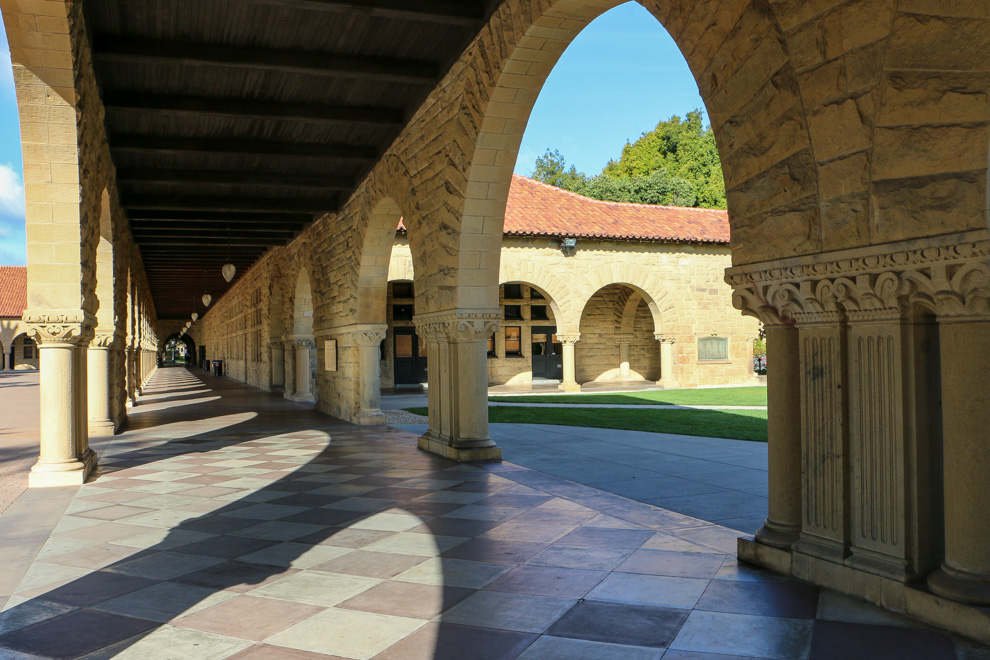Stanford’s Kappa Alpha (KA) fraternity will lose its campus housing for at least two years beginning in fall 2019, Vice Provost for Student Affairs Susie-Brubaker Cole wrote in an announcement on Wednesday. KA will remain a recognized fraternity at the University.
The decision is a response to KA’s violation of Stanford’s Policy on Fraternal Organizations Housed on Campus. The fraternity allowed students to reside in its house without paying room and board to the University. These additional residents exceeded the house’s maximum residential capacity.
The Office of Community Standards conducted an investigation of the fraternity after reports of this violation, and KA confirmed during the investigation that it allowed some members to live in its house without a Stanford housing contract during the 2017-18 school year.
“The investigation was not able to ascertain how much, in addition to regular member fees, the non-contracted residents paid to the chapter, and the chapter did not provide detailed financial evidence relevant to this point,” Brubaker-Cole wrote.
After the University investigation, an Organization Conduct Board (OCB) panel of three students and two faculty and staff reviewed the findings and decided unanimously that KA violated Stanford’s Residence Agreement and Fundamental Standard.
The OCB panel’s recommended sanctions include a payment to Stanford that is equivalent to the rent owed by former unapproved house residents. Though the Dean of Students has accepted the sanctions, they will not be finalized until after there is a final determination as to whether KA may retain its house. KA may also appeal the sanctions at that time.
“More important than the monetary sum is the breach of the ethical standards and relationship of trust that are foundations of our community and the core of the Fundamental Standard,” Brubaker-Cole wrote. “Intentionally deceiving the university and violating university policy clearly do not meet these standards. Fortunately, this mode of misconduct is rare in our Greek community. It is clearly not aligned with the high standards to which you hold your chapters and members collectively.”
She stressed that she still wishes for 10 Greek houses to be maintained on Stanford’s campus. There are currently 14 fraternities — eight of which are unhoused following the KA decision — at the University. The Greek Life Working Group announced by Brubaker-Cole in February will facilitate the process by which Greek organizations can request housing in fall 2019.
KA may appeal the panel’s determination, but only on the basis of “procedural errors or new information that was not known at the start of the panel’s review.” KA President Patrick Gilligan ’20 has not responded to The Daily’s request for comment.
Stanford reversed its decision to remove the Theta Delta Chi (TDX) fraternity’s housing in fall 2018 after a procedural flaw was discovered in how the fraternity had been evaluated. TDX President Nico Garcia ’20 declined to comment in this article. If the KA decision is appealed, Provost Persis Drell will make a final decision on whether to uphold or overturn the decision.
If the decision stands, students who were assigned to the house for fall 2019 will be housed in other campus residences instead. Residential & Dining Enterprises will operate the KA house as a co-ed self-op.
After the two year housing ban, KA may re-apply for housing in fall 2020. However, “its application would be considered alongside other fraternities and sororities requesting house privileges for 2021-22,” Brubaker-Cole wrote.
This article has been updated to clarify that fines and other potential sanctions on KA, other than the loss of housing privileges, will not be issued until after the potential for KA to appeal the housing decision is exhausted. After that point, KA may also appeal the other sanctions.
Contact Holden Foreman at hs4man21 ‘at’ stanford.edu.
